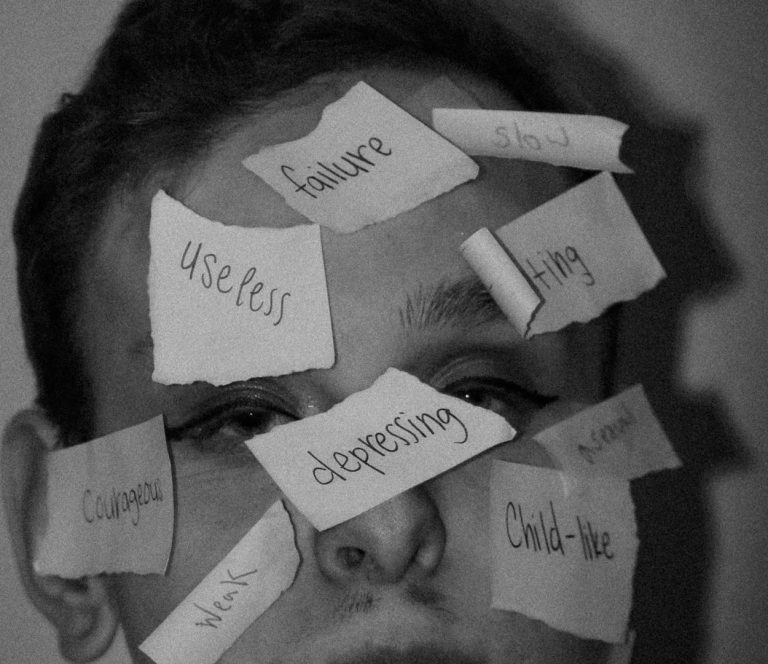
The Real Reason You Struggle with Self-Esteem (It's Not What You Think)
‘Self-esteem’ is how we view our own worth. When it’s low, we tend to believe we’re not good enough, not capable, or somehow fundamentally flawed. For some, this shows up as self-doubt or harsh inner criticism. For others, it hides behind a mask of competence, like imposter syndrome, where you might look confident on the outside but feel like a total fraud inside, just waiting to be exposed. Sound familiar? You're not alone. Low self-esteem can quietly shape the way we think, feel, and behave- often without us even realising it. In this post, we’ll explore where low self-esteem comes from, why it sticks around (even when we “know better”), and how we can start to loosen its grip using practical, evidence-based tools from Cognitive Behavioural Therapy (CBT).
Where Does Low Self-Esteem Begin?
Low self-esteem often has roots in early life experiences. Repeated criticism, bullying, rejection, trauma, or simply a lack of encouragement can lead us to develop a negative view of ourselves. While these experiences typically begin in childhood, they can happen at any stage in life.
Over time, these events shape our internal dialogue and the beliefs we hold about ourselves. We begin to absorb messages like “I’m not smart,” “I’m a burden,” or “I’m not lovable.” These are more than fleeting thoughts- they become what are known in CBT as core beliefs.
The Role of Core Beliefs and “Rules for Living”
Core beliefs are deep-seated assumptions we hold about ourselves, others, and the world. For example, someone who believes “I’m not good enough” might adopt a set of rigid coping strategies, or rules for living, to avoid facing that belief head-on.
Let’s say you believe you’re lazy. In an attempt to disprove this, you might push yourself to work at maximum capacity every day. On the surface, that sounds productive. But underneath, you’re constantly trying to outrun the belief that you’re not enough. If you slip up-even once-it feels like proof that the belief is true after all.
This is how low self-esteem quietly reinforces itself. The harder you try to meet these impossible standards, the more pressure you put on yourself, and the more likely you are to feel like a failure when you can’t keep up.
The Cycle That Keeps Low Self-Esteem Alive
Once these patterns take root, they can become self-perpetuating. If you don’t meet your own high expectations, you might respond with harsh self-criticism: “See? I knew I’d mess this up.” This can lead to feelings of shame, sadness, or anxiety.
To cope, you might withdraw, avoid challenges, or overthink decisions. These behaviours offer short-term relief but long-term consequences- they keep you from learning that you’re more capable than you believe.
Even when you don’t know for sure whether you've failed, the uncertainty itself can be unsettling. This leads to anxious predictions- “What if I mess up?” “What if they think I’m incompetent?”- which in turn leads to more avoidance or perfectionism. The cycle continues.
When Low Self-Esteem Looks Like Imposter Syndrome
Sometimes, low self-esteem shows up as imposter syndrome- the persistent belief that you're a fraud, even when you're competent and successful. You might fear being “found out,” thinking your achievements are due to luck rather than ability. Imposter syndrome thrives on the same negative core beliefs that drive low self-esteem, such as “I’m not smart enough” or “I don’t deserve this.” It pushes you to overwork, hide your doubts, and dismiss praise. CBT helps you recognize these patterns, challenge their accuracy, and build a more grounded and confident sense of self- one that acknowledges both your strengths and your areas for growth without shame.
Breaking the Cycle with CBT
Cognitive Behavioural Therapy (CBT) is a structured, evidence-based approach that helps people identify and challenge unhelpful patterns in thinking and behaviour. When it comes to self-esteem, CBT focuses on:
Recognising negative core beliefs and understanding where they came from.
Challenging the “rules for living” that keep those beliefs alive.
Testing anxious predictions through real-life experiments.
Practicing self-compassion and more balanced ways of thinking.
Develop fair, more realistic core beliefs and establish new rules for living.
How to live life by your new beliefs and rules
CBT helps you gather real evidence about who you are- beyond the outdated beliefs. Over time, it can support a more flexible, accepting, and confident view of yourself.
Ready to Improve Your Self-Esteem?
If you’ve been running on self-doubt, perfectionism, or the quiet fear of being “found out,” you’re not alone, and you’re definitely not beyond help. Self-esteem isn’t something you’re born with or without; it’s shaped over time, and it can be reshaped. That’s what I’m here for. I work with people who are ready to question the stories they’ve been telling themselves and start building something more truthful- and more kind. It won’t be magic, and it won’t be overnight, but with the right tools (and the occasional well-timed laugh), it can absolutely get better. If that sounds like your kind of approach, let’s talk.
Click here or fill in the form below to arrange a free consultation.
